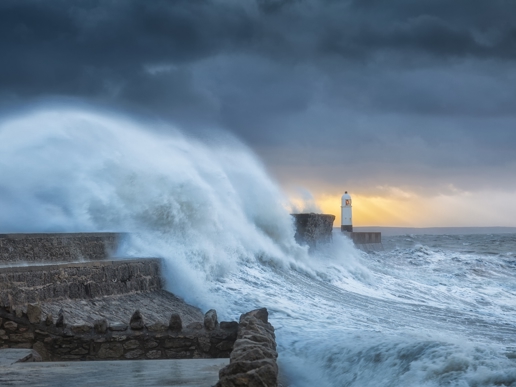Budget was a missed opportunity on climate change

Reproduced with permission from The Times Enterprise Network. To subscribe click here.
The climate change emergency is an existential crisis facing our planet. Sir Patrick Vallance, the government’s chief scientific adviser, said as much yesterday at the start of Cop26 conference in Glasgow. Commenting on the World Meteorological Organisation’s State of the Global Climate report, he said it “hammers home the message that climate change is real and present: the seas are rising, glaciers are melting, and floods and wildfires are more frequent”.
If these changes to our climate are allowed to gather pace, it will make the Covid-19 pandemic look like a warm-up exercise. We urgently have to find collective solutions.
And yet, anyone watching last week’s budget from the chancellor would barely have had an inkling that any such crisis exists. He hardly even referred to it. There were next to no measures announced to aid decarbonisation. He even incentivised domestic air travel. It was classic deck-chairs stuff.
Gimmicks like a 3p-a-pint reduction in beer duty miss the entire point that the government needs to stop subsidising fossil fuels and start subsidising new, green industry that will be our future. Other countries are ahead of us. Look at Denmark. They began subsidising their wind manufacturers when it wasn’t economic. Now they have a global industry that is leading the way and contributing to the national economy.
As well as watching the budget last week, I attended the World Wide Fund for Nature’s State of the Planet address on Thursday evening. It was an emotional evening with an urgent message about what we need to do. No longer is the WWF just talking about giant pandas in China or individual endangered species that they have helped to protect — it is focusing entirely on climate change and the loss of biodiversity and the impact this will have on all life. Christiana Figueres, former executive secretary of the UN framework convention on climate change, spoke very passionately about the dangers of inaction and the hope that we will grasp the opportunity and come together to solve the crisis.
That’s why — for me — the budget was a let-down. The chancellor has provided some excellent support to businesses during the pandemic. There are no free lunches, and taxes now need to go up. We have to accept that. Rishi Sunak announced some good measures to support businesses and the economy. But these are not normal times. The budget needed to do more to reinforce the government’s net-zero commitments.
The government’s job is to set legally binding frameworks and targets (such as its decision last November to end the sales of new petrol and diesel cars by 2030) and incentives to promote the right course of action (such as the £5,000 heat pump incentive), then allow the market to respond to them. The transition will be painful for some but we have to get started. Delaying big decisions doesn’t help anyone if it is going to be inevitable. It just makes it harder.
What could the chancellor have done? We need more investment in getting to net zero, including the national rollout of electric vehicle chargers (which my business is now installing at scale) to support the shift to electric. We need to prioritise green energy, green buildings and cleaner water (the last minute U-turn on legal controls for water firms dumping raw sewage in rivers was a relief). A reduction in VAT on household renewable electricity bills would also have been beneficial, leaving gas and dirty electricity with the tax. The decision to link business rates relief with sustainability improvements to premises was one small chink of light.
On the “business as usual” side, there were some welcome measures. The big challenge for us, like many UK businesses, is finding good people to hire and continuing skills development to support our own growth. On the labour supply side, the tapering of universal credit and skills training for post-16 education can only be a good thing, while the upfront support for business spending through the annual investment allowance should bring forward investment. The apprenticeship levy has worked well for us as we normally deliver an additional £150,000 of training a year at a cost of £7,500 so we were pleased to see the scheme boosted and the intention to give employers more choice over how training is delivered.
Research and development (R&D) and technology investment to boost productivity is probably one of the most important areas in the budget for businesses like ours. We are increasing our own investment in this area. So the budget’s support for this was welcome. Reforming R&D tax reliefs to expand qualifying expenditure including data and cloud costs is a positive move too. Likewise, the continuation of the Help to Grow scheme to support more than 100,000 small and medium-sized firms with management training and digital adoption. We are keen to help the leaders of our field teams take advantage of new tools to improve their businesses.
In other words, as a conventional budget it ticked many of the right boxes. It included measures to support businesses to invest for growth. But we needed so much more. Given its proximity to the start of Cop26, the budget was a perfect opportunity for the chancellor to send a powerful message. He didn’t, and that for me is the real disappointment.

Why the landscape industry must lead the ESG charge

Beat the budget blues by becoming your own disruptor





